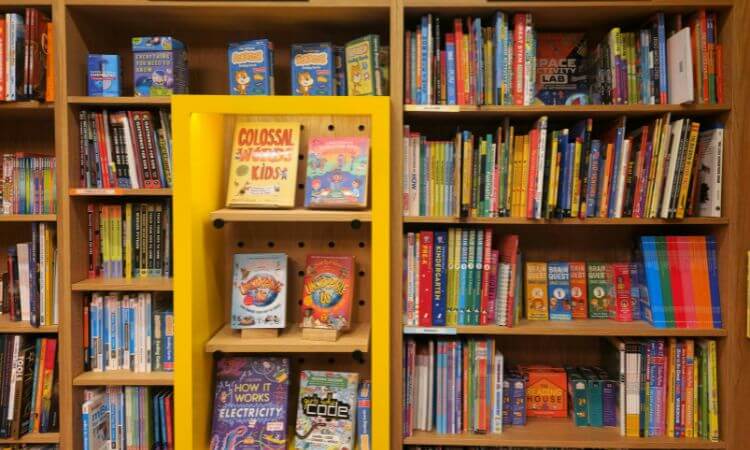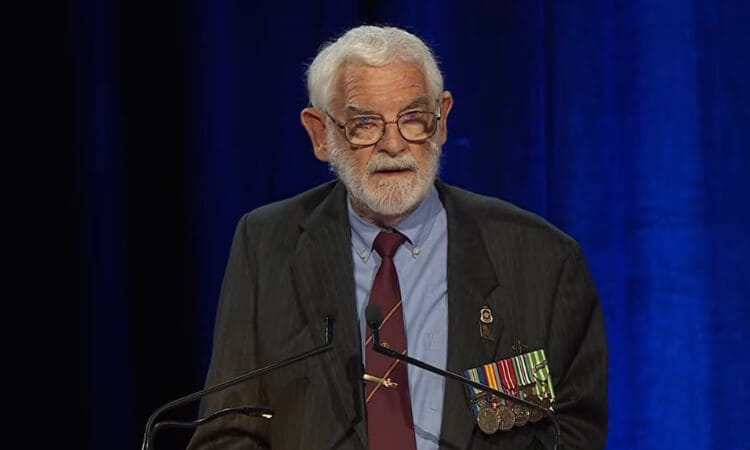The prestigious Booker Prize has announced a brand new category for children’s books worth £50,000.
Open to books written in English and published in England or Ireland, the Children’s Booker will recruit three child judges to join three adult judges in deciding which story deserves the accolade.
The announcement comes in the middle of a “literacy crisis”. A recent survey by the National Literacy Trust found British children were reading less and with less enjoyment.
A similar trend is evident in Australia. The most recent report from the Australian Bureau of Statistics reveals literacy rates are holding reasonably steady. But a survey by Australia Reads found the proportion of children between 6-17 years who read for pleasure has declined – down from 37% in 2010 to only 28% – and enjoyment of reading was decreasing with age.
The new children’s award hopes to reverse the trend. The Booker Prize Foundation plans to donate 30,000 copies of the shortlisted books to increase exposure to outstanding works of fiction for children. Its chief executive Gaby Wood declared, “the Children’s Booker Prize is not just a prize – it’s part of a movement: a cause that children, parents, carers, teachers and everyone in the world of storytelling can get behind”.
The National Literacy Trust in England has also declared 2026 to be a National Year of Reading in an effort to alter the reading habits of the country.
But will such efforts raise reading levels?
The Australian context
Australia already has numerous highly competitive and illustrious book prizes for children’s authors. These include Children’s Book Council of Australia Book of the Year, the Prime Minister’s Literary Award and numerous state-based prizes.
But this multitude of prizes and opportunities to distinguish quality literature does not seem to be enticing Australian children. Reading enjoyment and access to literature remain barriers to literacy.
The National Assessment Program: Literary and Numeracy (NAPLAN) results are the most recent statistics we have for middle-school children. The 2025 report indicates that while two out of three students were “strong” or “exceeding” expectations in reading and writing skills, one in ten “needs additional support”.
There is also an increasing number of students who decline to participate in NAPLAN testing, which would influence these results. The Australian Education Research Organisation found low performing students are less likely to take the tests.
Those who are struggling mostly come from disadvantaged backgrounds. Influencing factors can include gender, remoteness, language background, parental education, parental occupation and First Nations status.
The figures indicate an incomplete though somewhat troubling picture of literacy in Australia.
Recreational reading
The reports have acted as a call to arms for government and the publishing industry, which have recognised that part of the literacy puzzle is that most children do not enjoy reading.
The NSW government has recently pledged AU$3.2 million to an ambitious writing and reading literature strategy. This year, Penguin Random House Australia and NZ offered AU$200,000 in grants to booksellers for projects that will entice young readers into stores. Bookstores with a dedicated children’s section could apply for up to $8,000.
One concern here is the perceived conflict between reading for educational purposes and reading for pleasure. A recent global report on the decline in young people’s recreational reading suggests that “overemphasis on skills” may significantly decrease reading enjoyment. Too much focus on skill development and testing, combined with screens competing for children’s time and attention, reduce the drive to read.
Research indicates the answer to increasing measurable literacy rates lies in encouraging reading for enjoyment rather than prioritising quantifiable outcomes. A report from the National Institute of Education in Singapore suggests six key principles for literacy success, and none of them is centred on curriculum:
- agency
- access to literature
- time in daily routines
- reflection and connection
- social interaction
- developing a positive reading identity.
The benefits of literacy follow from this kind of open-ended encouragement. The report found that “when young people choose to read regularly, they become more proficient readers, do better academically, and experience greater wellbeing and social cognition outcomes”.
Make reading fun again
One of the roles of literary prizes is to pinpoint and promote “good books”. They promote stories with a seal of approval by experts. Shiny stickers on book covers enhance the credibility and perceived value of a novel, and they can increase visibility and sales. Prize-winning books are frequently chosen to stock libraries, bookstores and bedroom bookshelves.
But enticing young people to read will require multifaceted and cooperative strategies. It will require a concerted effort by parents, carers, teachers and public intellectuals to promote reading for enjoyment. It will take a community.
This is fitting, because a vital factor of enjoyment is the social dimension of reading. Perhaps most importantly, stories can be spaces for connection.
Reading is often considered profoundly private, but research tells us that it is, in fact, intensely social. Humans love to connect over stories. New Zealand scholars Ruth Boyask, Celeste Harrington, John Milne and Bradley Smith found that agency, choice and the chance to discuss stories with others are motivating factors and indicators of reading enjoyment.
Habitual readers have increased literacy and numeracy skills, but reading also encourages curiosity and empathy. Another recent study found children who read for enjoyment alter their brain structures and experience an increased capacity for learning and positive mental health.
The researchers emphasised “the important relationships of early reading for pleasure with subsequent brain and cognitive development and mental well-being”.
Literary prizes that promote and encourage reading are useful and welcome tools for encouraging reading for enjoyment, but they are not enough in themselves. It will take a bookish community of adults to increase reading enjoyment in children. As an added bonus, literacy rates will likewise receive a boost.
The article has been republished from The Conversation under the Creative Commons license. Read the original article.




